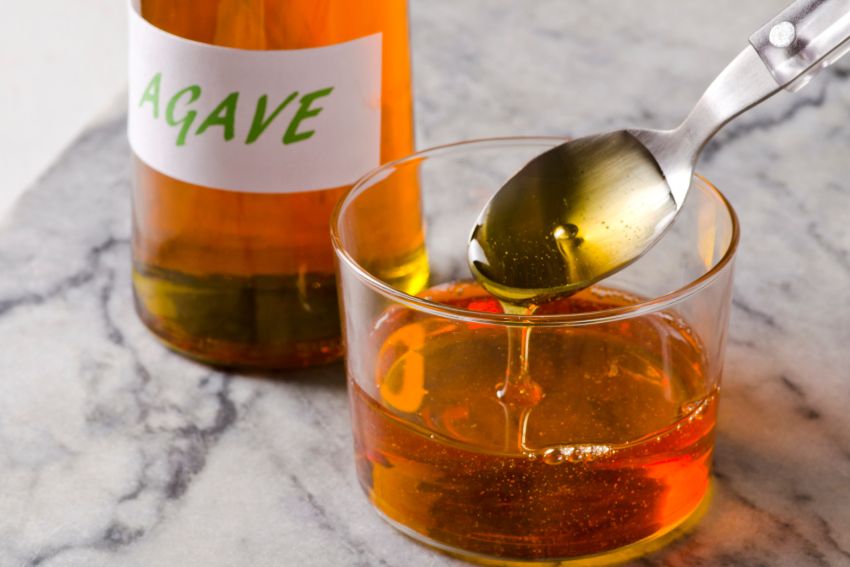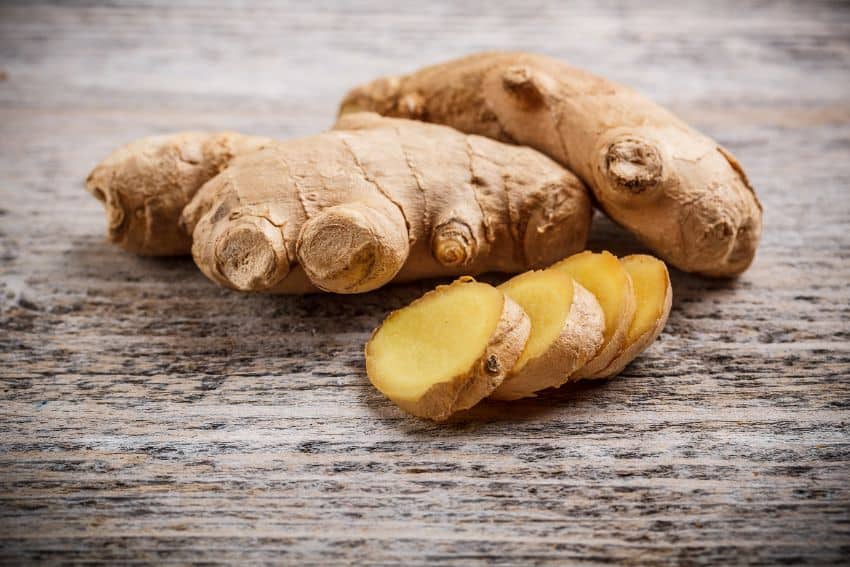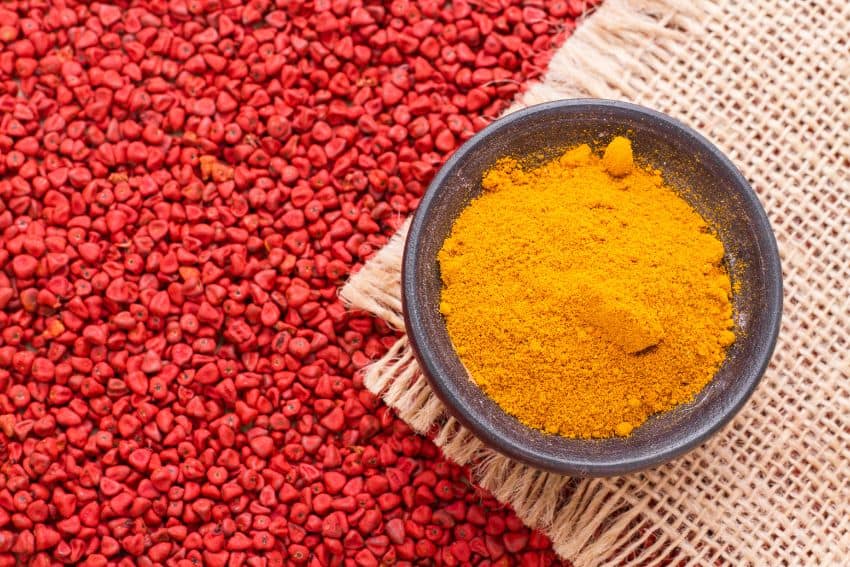Agave nectar has been a popular natural sweetener for years, but did you know there are plenty of other delicious and healthy alternatives out there? Whether you’re looking for something with a lower glycemic index or just want to experiment with different flavors, our comprehensive guide to agave nectar substitutes has got you covered. Just remember, substitution ratios may vary, so be sure to adjust your recipe accordingly.
Outline
12 Best Agave Nectar Substitutes
Let’s start with the list of the best agave nectar substitutes.
1. Honey: A Natural and Delicious Alternative
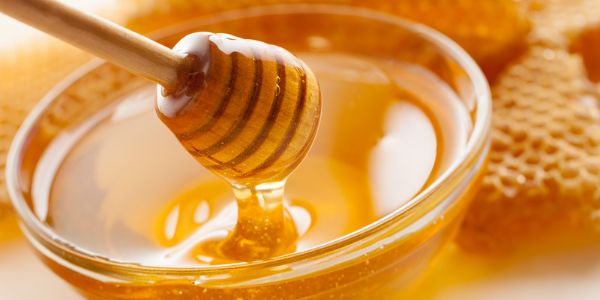
Honey is a versatile natural sweetener that comes in various forms, such as raw, organic, and flavored. Each type of honey has its unique flavor profile, and the taste can range from mild to bold, depending on the flowers bees visit. When using honey as an agave nectar substitute, you can generally use a 1:1 ratio. However, remember that it is sweeter and thicker, so you might need to adjust the quantity and consistency of your recipe. Also, honey has antimicrobial properties and is known for its potential health benefits, making it a great alternative to agave nectar.
2. Date Syrup: A Nutrient-Rich Sweetener
Date syrup, made from the natural sugars found in dates, is another excellent alternative to agave nectar. It is made by blending fresh or dried dates with water, creating a thick and rich sweetener packed with natural sugars, vitamins, and minerals.
Date Syrup has a deep, caramel-like flavor and can be used as a one-to-one substitute for agave nectar in most recipes. It is also rich in antioxidants and can provide a unique taste to your dishes while offering various health benefits. Its rich, fruity flavor works especially well in baked goods and smoothies.
3. Coconut Sugar: A Low Glycemic Option
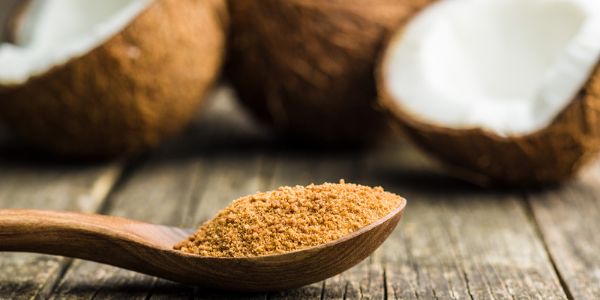
Derived from the sap of the coconut palm, coconut sugar is a tasty and low-glycemic alternative to agave nectar. Its caramel-like flavor pairs well with various recipes and can be used as a one-to-one replacement in most cases. Plus, coconut sugar won’t cause drastic spikes in blood sugar levels, making it a healthier choice for those watching their sugar intake or managing diabetes.
Furthermore, coconut sugar production is more sustainable and eco-friendly than traditional sugar production, making it an excellent choice if you are environmentally conscious.
4. Maple Syrup: A Classic Natural Sweetener

Maple syrup is a timeless favorite and a fantastic agave nectar substitute. Packed with essential nutrients like calcium, iron, and antioxidants, it offers numerous health benefits. When using maple syrup in place of agave nectar, you can usually swap it in equal amounts.
However, since maple syrup isn’t as intensely sweet as agave nectar, you may need to add a little extra to satisfy your sweet tooth. Its unique flavor works well in a variety of recipes, from pancakes and waffles to salad dressings and marinades.
5. Rice Syrup: A Gluten-Free Substitute
If you’re looking for a gluten-free option, rice syrup is the way to go. Made from fermented rice, this natural sweetener has a subtle, nutty taste that complements many dishes. When using rice syrup as an agave nectar substitute, start with a 1:1 ratio and adjust as needed. Its mild flavor makes it ideal for baked goods, granola, and even as a coffee sweetener.
6. Golden Syrup: A Versatile Option

Golden syrup, a thick and amber-colored syrup made from sugar cane or sugar beet juice. Its rich flavor and smooth texture make it a versatile substitute for agave nectar. Use a 1:1 ratio when swapping golden syrup for agave nectar, and remember that golden syrup has a distinct flavor that may affect the overall taste of your dish. It works well in baked goods, caramel sauces, and as a topping for desserts.
7. Molasses: A Thick, Rich Sweetener
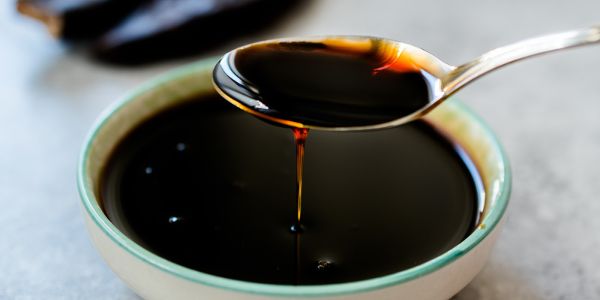
Molasses is a thick, dark syrup produced during the sugar refining process. It’s a byproduct of sugar production and has a distinct, sweet flavor, making it a popular ingredient in many recipes. There are several types of molasses, each with its unique characteristics and flavor profiles:
- Light Molasses: Also known as mild molasses, light molasses is produced during the first boiling of sugar cane or sugar beet juice. It has the lightest color and mildest flavor of all types of molasses. It’s perfect for adding a subtle sweetness to baked goods, sauces, and marinades.
- Dark Molasses: Dark molasses result from second boiling of sugar cane or sugar beet juice. It has a darker color, thicker consistency, and a more robust flavor than light molasses. Dark molasses is great for gingerbread cookies, BBQ sauces, and other recipes that call for a richer taste.
- Blackstrap Molasses: Blackstrap molasses is obtained from the third and final boiling of sugar cane or sugar beet juice. It has the darkest color, the thickest consistency, and the most intense flavor of all types of molasses. It is also the most nutritious, retaining the most vitamins and minerals during refining. Blackstrap molasses can be used in recipes that require a bold flavor, such as baked beans or hearty stews.
Molasses can be used to replace agave nectar in recipes, especially when you’re looking for a richer, more complex flavor. Remember that molasses is thicker and more robust than agave nectar, so you may need to adjust the amount used in your recipe. As a general guideline, start with a 1:1 substitution ratio and adjust to taste. You may also need to slightly reduce other liquid ingredients in your recipe to maintain the right consistency.
8. Corn Syrup: A Common Sweetener
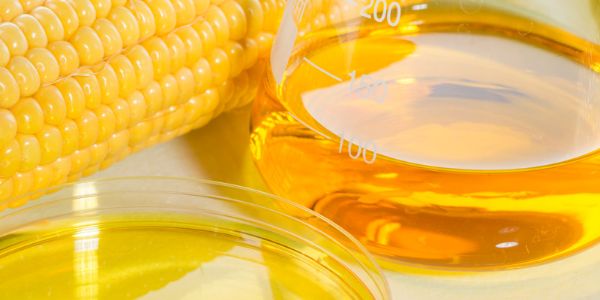
Corn syrup, a popular sweetener in candy-making and baking, can also be used as an agave nectar substitute. To replace agave nectar with corn syrup, use a 1:1 ratio of white sugar and corn syrup. Keep in mind that corn syrup has a different consistency and may alter the texture of your final product. It works well in candy, fudge, and certain baked goods.
9. Coconut Nectar: A Tropical Twist
Coconut nectar, a sweet and syrupy liquid derived from the sap of the coconut palm flower, offers a delightful tropical twist as an agave nectar substitute. This unique sweetener has a slightly nutty and caramel-like flavor that adds a touch of exotic flair to your dishes. To substitute coconut nectar for agave nectar, use a 1:1 ratio, but keep in mind that its distinct taste may alter the flavor profile of your recipe. Coconut nectar is an excellent choice for drizzling over pancakes, adding to smoothies, or incorporating into your favorite baked goods.
10. Simple Syrup: A Customizable Sweetener
Simple syrup, a 1:1 mixture of sugar and water, is a versatile and customizable sweetener that can easily replace agave nectar in many recipes. To make your own simple syrup, heat equal parts sugar and water in a saucepan until the sugar dissolves, then allow it to cool. You can also infuse your simple syrup with herbs, spices, or fruit for added flavor. Use simple syrup in a 1:1 ratio when substituting for agave nectar, and remember that it may be less viscous and slightly sweeter, so adjust the amount accordingly.
11. Brown Rice Syrup: A Wholesome Alternative
Brown rice syrup, a natural sweetener made from fermented brown rice, offers a wholesome alternative to agave nectar. Its mild, malty flavor works well in various recipes, from baked goods to sauces. To substitute brown rice syrup for agave nectar, use a 1:1 ratio, but remember that it may not be as sweet, so you may need to adjust the amount to taste.
Factors to Consider When Choosing an Agave Nectar Substitute
1. Flavor Profile
Each agave nectar substitute has its unique flavor, which can impact the taste of your final dish. When choosing a substitute, consider the flavor profile of both the original sweetener (agave nectar) and the alternative you’re using:
- Agave nectar has a mild, slightly floral taste with hints of caramel.
- Consider how the flavor of the substitute complements or contrasts with the dish you’re preparing.
- Choose a substitute with a similar flavor profile to agave nectar, such as honey or maple syrup, for a seamless swap, or experiment with different flavors like molasses or coconut sugar for a unique twist.
2. Sweetness Level
Agave nectar substitutes can vary in their sweetness levels. It’s essential to keep this in mind to achieve the desired level of sweetness in your dish:
- Agave nectar is about 1.5 times sweeter than granulated sugar.
- Adjust the amount of the substitute you use accordingly, e.g., use more maple syrup or less stevia, to match the sweetness of agave nectar.
- You may need to experiment with different ratios to achieve the desired sweetness level in your recipe.
3. Consistency and Texture
The consistency and texture of agave nectar substitutes can affect the outcome of your dish. When choosing a substitute, consider the following:
- Agave nectar is a thick, syrupy liquid that dissolves easily in liquids and mixes well with other ingredients.
- Choose a substitute with a similar consistency, such as honey, maple syrup, or corn syrup, to maintain the texture of your dish.
- Be prepared to adjust the amount of liquid in your recipe or add a thickening agent if using a substitute with a different consistency, like granulated sugar or coconut sugar.
4. Glycemic Index and Nutritional Content
If you’re watching your sugar intake or looking for a healthier alternative, consider the glycemic index and nutritional content of the agave nectar substitute:
- Agave nectar has a low glycemic index (around 15-30), making it a better option for those looking to control their blood sugar levels.
- Choose a substitute with a similar glycemic index, like coconut sugar or stevia, for a healthier alternative.
- Keep in mind that some substitutes, like honey and maple syrup, have more nutritional benefits than agave nectar, while others, like corn syrup, maybe less healthy.
5. Dietary Restrictions and Preferences
Lastly, consider any dietary restrictions or preferences you or your guests may have when choosing an agave nectar substitute:
- If you’re cooking for vegans, choose a plant-based alternative like maple syrup or coconut nectar instead of honey, which is an animal byproduct.
- For those with specific allergies or intolerances, select a substitute that doesn’t trigger any adverse reactions.
There you have it – a comprehensive list of agave nectar substitutes to sweeten your life with natural alternatives. Don’t be afraid to experiment with different sweeteners in your recipes, as each one offers a unique flavor profile and potential health benefits. Happy cooking!

